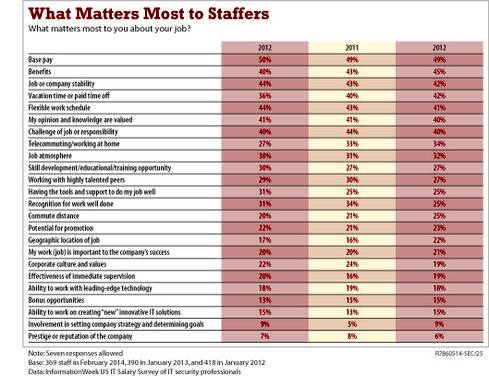Finding top tech talent can be tough, and it's even trickier when the job is less than sexy. Here are seven tips on how to play up your company's advantages to attract the best candidates.

Judging by the headlines and rush for H1-B visas, IT hiring managers are having a tough time finding talent, even in high-demand areas. Tougher still is finding the perfect fit for a specific job while ensuring the candidate will mesh with your company's culture. But the biggest challenge I see as a technology recruiter is finding top candidates for mundane projects like website maintenance, or for those that use old technology -- think ActionScript or Classic ASP.
Sure, these projects are important to your company, but hiring managers may need to "sell" them a little harder to attract top job seekers or contractors. Here are seven tips to help do that.
1. Showcase technologies that are new to the candidate.
Research the candidate's background and highlight any technologies in your shop that the candidate has little or no experience with. For example, .Net developers might be enticed by MVC 4 or WCF Web services. Tailor your pitch to the candidate, just as you'd expect them to research your company.
2. Variety is the spice of resumes.
Emphasize the benefits of working on a large and varied set of projects, including core technology that may not be sexy but is critical for most businesses. Having diverse experience will help IT pros build solid resumes, expand their skill sets, and enhance their long-term marketability.
[Did Yahoo's Marissa Mayer miss the boat on talent retention? Read Yahoo's 'Mission Accomplished' Moment: Talent Retention.]
3. Ask candidates what excites them. You may be surprised.
Ask questions of potential hires. What kind of work environment is he or she seeking? Maybe the candidate is interested in what your company makes, and would like to be embedded in a business unit. Maybe he wants to work on a small team, or experience a specific methodology. Include someone on the interview team who has the expertise and creativity to explain how your company has what the candidate is looking for.
4. Play up the potential.
This can be one of the biggest selling points for a star candidate. While the first project might be dry, emphasize that success on this one will likely lead to something better. Describe upcoming projects and plans for both IT and the business as a whole. This approach will also help the candidate feel invested in the company's future.
5. Showcase the perks.
For tech jobs, we often entice candidates with flexible hours and working remotely. Pool and ping pong, happy hour, and free food are helpful too. If your company offers fun perks, be sure to share them during the interview. And don't think that it's all about the bottom line. In the new 2014 InformationWeek Salary Survey, of 369 security staffers responding, just 49% say base pay matters most -- 40% answered "my opinion and knowledge are valued." Recognition, stability of the company, and training all rate high.
6. Appeal to all the candidate's interests.
Some candidates are interested in a specific industry or specialty area. I had a star candidate whose background was with insurance and financial clients, but his passion was sports. I found an exciting role for him at a major American sports league, and he was thrilled. Find out what your candidates are passionate about and emphasize during the interview how your company fits.
7. Find out who they admire.
Some job seekers have a desire to work for a specific person, such as a company founder, a well-respected person in a particular field, or someone with experience they would like to learn from. Again, if you can tease out this information and respond in a way that appeals to the candidate, you've found another selling point.
The goal is not to convince candidates to take a job that isn't the right fit -- that's not good for anyone. Rather, the idea is for hiring managers to invest the time to listen to the candidate and do some research, so they can show how the company -- and the project -- could be a good match. Additionally, this approach enables hiring managers to better understand the candidate's background, and in turn, share ways the role can enhance their learning and serve as a good step on their career path.
Take part in the 17th annual InformationWeek Strategic Security Survey, help shape our 2014 coverage, and enter to win a 64 GB iPad or one of three on-on-one consultations with report author and security expert Michael A. Davis.
About the Author(s)
You May Also Like







